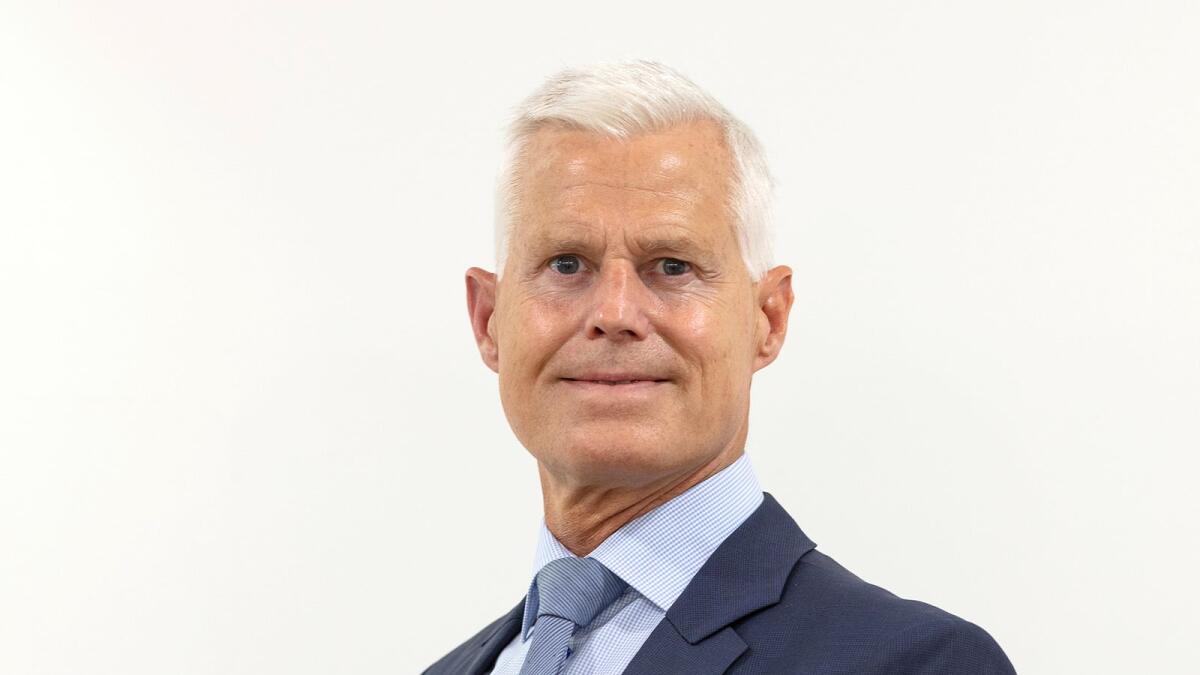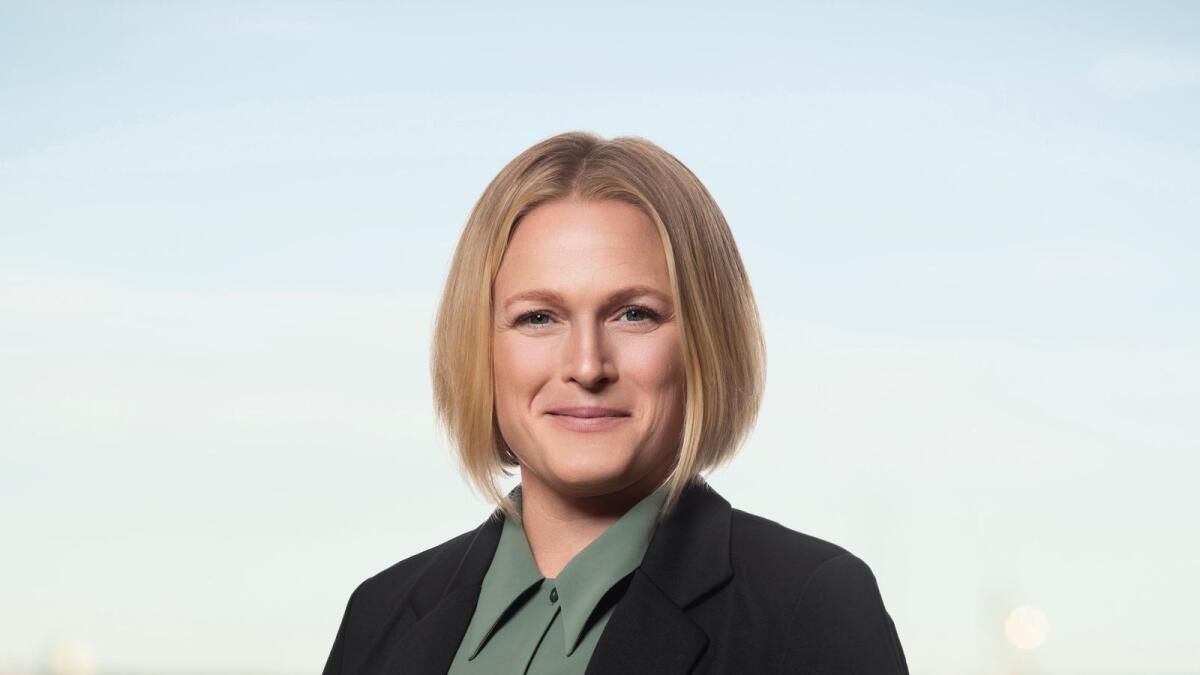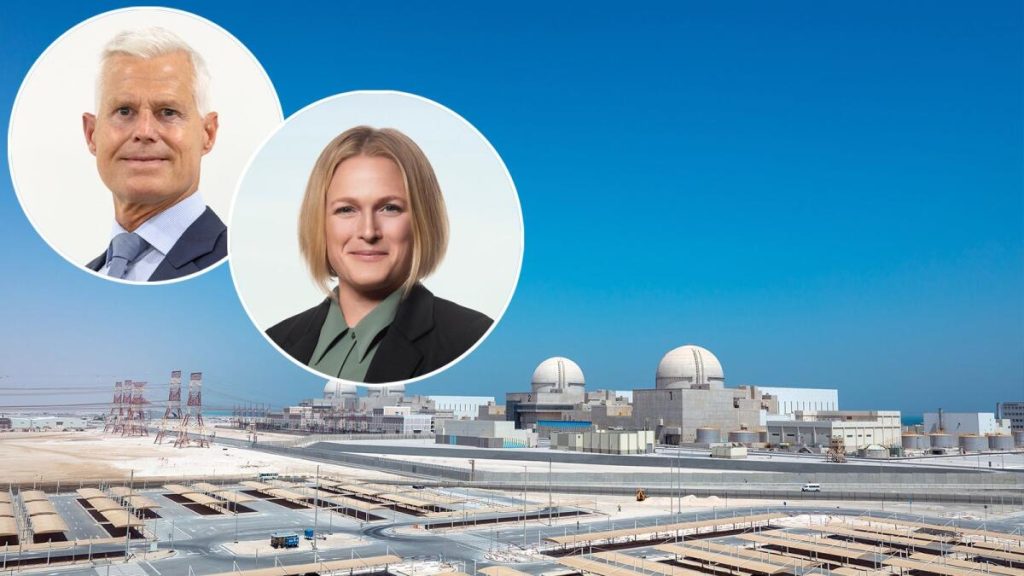Climate change
Photo: press photo, Ernst Henry
Many countries around the world are now investing in nuclear energy to reduce their fossil emissions, including the United Arab Emirates. “The four reactors cut emissions roughly in half,” Mats Ladeborn tells TN.
The oil state of the UAE is now investing heavily in reducing fossil emissions, among other things with the help of nuclear power. West of Abu Dhabi, the country’s first nuclear power plant was built, which will consist of four reactors.
As early as 2008, the country decided to diversify its energy portfolio to reduce its dependence on oil and gas. The state-owned Emirates Nuclear Energy Corporation (ENEC) is responsible for constructing the four reactors, and South Korea’s KEPCO is leading the construction of the facilities.
In operation since April
Mats Ladborn, the corporation’s head of nuclear operations, is one of the many Swedes recruited for the project. In December last year, Mats Ladborn quit his job at Wattenfall in Sweden and moved to Abu Dhabi.
– The project is successful, the first reactor has been in operation since April of this year, the second is connected to the network and is in trial operation, and the other two reactors are expected to start operating in 2023 and 2024, says Ladeborn.

Mats Ladborn
He says investment in nuclear energy has been well received in the United Arab Emirates.
It is clear that it will reduce the impact of the climate, which is a major goal. They are also making significant investments in research and development in the region at the same time as building competency in the country.
When the four reactors are in operation, they will account for 25 percent of electricity demand, which is estimated to reduce carbon dioxide emissions by 21 million tons annually.
The four reactors cut the emissions of the Emirate of Abu Dhabi by almost half.
Investing in nuclear energy in the UAE has some similarities to the Swedish model.
There is a clear policy that whoever produces the waste should take care of it too. Funds are allocated to the waste fund and the same type of deep repositories are checked as planned in Sweden, even if nothing is reported.
Experience from all over the world
The UAE has succeeded in attracting expertise from all over the world. Mats Ladborn says ENEC employees come from 50 different countries.
– We Swedes can contribute from many different points of view, in addition to the issue of waste, we are also very good at meeting the high safety requirements that exist in all areas.
It is not only the UAE that is investing in nuclear energy at the moment. French President Emmanuel Macron recently announced that his country will build more nuclear power plants to meet climate demands and the growing need for electricity. Estonia, the United Kingdom and Finland will also build new nuclear power to meet climate goals. The fact that more countries are choosing to invest in nuclear power means that competition for efficiency will be tougher globally.
There is a danger that a lot of knowledge will disappear from Sweden. When working with this advanced technology, each country must ensure that they have the necessary skills. Since many countries around the world are now starting to consider nuclear energy, there may be a lack of experience in this field.

Marie Knutsen Ui
Marie Knutsen-Uwe, who is responsible for energy policy at the Swedish Business Consortium, is positive that countries around the world are investing in fossil-free electricity.
Swedish companies are investing heavily in the technology of tomorrow, which means we are phasing out fossil fuels and eliminating emissions. Unfortunately, it is not enough for us in Sweden or even in the entire European Union to reduce our emissions. Therefore, it is positive that the oil-producing countries choose to invest in the development of fossil-free power plants and that they see the benefits of nuclear energy, which has been the basis of electricity production in Sweden for a long time.
Planned lower electricity production
At the same time, concerned about the development of Sweden.
The share of weather-dependent production in Sweden is increasing at the same time that the share of planned electricity production is decreasing. Similar developments are happening across Europe and this means we face similar challenges as electricity systems stabilize, says Marie Knutson-Uwe and continues:
– More planned production of fossil-free electricity is needed in Sweden and Europe in order for us to succeed in meeting the EU’s target of net zero and higher growth. The UAE investment shows that the overall goal must be to reduce global carbon dioxide emissions if we are to achieve climate goals.
On the other hand, the fact that efficiency has disappeared from Sweden should not only be negative.
At the same time that an important competence in nuclear energy is disappearing from Sweden, it also means that Swedes interested in the region have the opportunity to develop their expertise in other countries. It is a knowledge exchange that we can benefit from in Sweden in the future.

“Extreme tv maven. Beer fanatic. Friendly bacon fan. Communicator. Wannabe travel expert.”









More Stories
Brexit brings economic uncertainty – Finland worst hit in the long run – Hufvudstadsbladet
Britain wants closer ties with the European Union.
Britain may already be out of recession